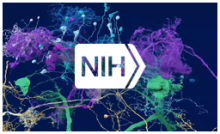
Last month, members of the NIH BRAIN Initiative Neuroethics Working Group (NEWG) and Multi-Council Working Group (MCWG) discussed the ethics of research participant payment, diversifying brain tissue donation, the BRAIN Initiative Investigators meeting, and more.
On August 19, 2021, the BRAIN Initiative Neuroethics Working Group (NEWG) held its twelfth meeting. The NEWG ensures that neuroethics is fully integrated into the BRAIN Initiative as new tools and technologies emerge. Meeting participants considered the ethics of compensation for research participation and ways to diversify human brain tissue used in BRAIN-funded research.
Dr. John Ngai, Director of the NIH BRAIN Initiative, updated the group on a funding opportunity for neuroethics research and recapped recent events, such as the neuroethics engagement session at the BRAIN Initiative Investigators meeting (check out a meeting summary here). Next, Dr. Christine Grady, Senior Investigator and Chief of the NIH Department of Bioethics, summarized key ethical issues in compensation of research participation. She noted limited data on how payment affects participation and gaps in knowledge (i.e., Does it motivate people to participate? How do participants perceive payment?), especially among economically disadvantaged groups. The NEWG discussed how to define undue influence and the importance of building trust with research participants and communities.
Next, Dr. Daniel Miller, NINDS Program Director, discussed possible incentives to diversify brain tissue samples used in neuroscience research. Meeting participants discussed ways to boost healthy brain tissue donations and the need for culturally relevant community engagement, especially with underserved populations. The NEWG also considered whether incentives for brain donation should scale to financial need and how to frame them. Lastly, the group proposed hosting a possible workshop to address broad ethical issues and solutions to collecting diverse brain tissue samples that truly represent society. For a detailed meeting synopsis, please view the NEWG (pdf, 206 KB)meeting summary and archived videocast.
The next day, the Multi-Council Working Group (MCWG) and the NEWG met to discuss BRAIN updates, the annual BRAIN Initiative Investigators meeting, and a new concept for funding.
Dr. Ngai first updated the group on scientific advances that have laid the groundwork for some of the transformative projects outlined in the BRAIN 2.0 report. In particular, he highlighted the BRAIN Initiative Cell Census Network (BICCN), a cooperative research network comprising over 200 investigators across 45 institutions, as an exemplar of team science. He also lauded recent cell-type armamentarium and brain connectivity research efforts. Lastly, Dr. Ngai reminded everyone of the Plan for Enhancing Diverse Perspectives (PEDP) policy notice, issued just last week.
Next, Dr. Samantha White, Chief of the NINDS Scientific and Public Engagement branch, debriefed the group on themes and outcomes of the 7th Annual BRAIN Initiative Investigators Meeting. The three-day virtual meeting was a great success, hosting nearly 3400 attendees across scientific disciplines, job sectors, and career stages, worldwide. In particular, meeting attendees highly valued the Diversity, Equity, and Inclusion (DEI) Dialogue specialty session. The MCWG discussed the importance of DEI programming and broadening the dissemination of event recordings. They also suggested looking further into social media engagement and other event metrics.
NIH staff presented a new concept for funding on quantifying and synchronizing behavior and brain activity. Meeting participants discussed embedding neuroethics into research projects funded by this concept, especially in light of real-world applications and possible ethical issues, such as data privacy and sharing. The MCWG also considered ways to encourage collaborations between human brain researchers (e.g., experts in engineering, artificial intelligence, and data science) and scientists who use animal models and recognized the importance of open-source tool development and dissemination. For more details, please view the MCWG meeting summary(pdf, 149 KB) and videocast.
The next NEWG and MCWG meetings will take place on January 24 and 25, 2022, respectively.
